Archivos
-

Temas de Investigación Educativa
Vol. 14 Núm. 1 (2026)Editoras de Sisyphus [Org.]
[número solo com artículos enviados por el régimen de envío continuado] -
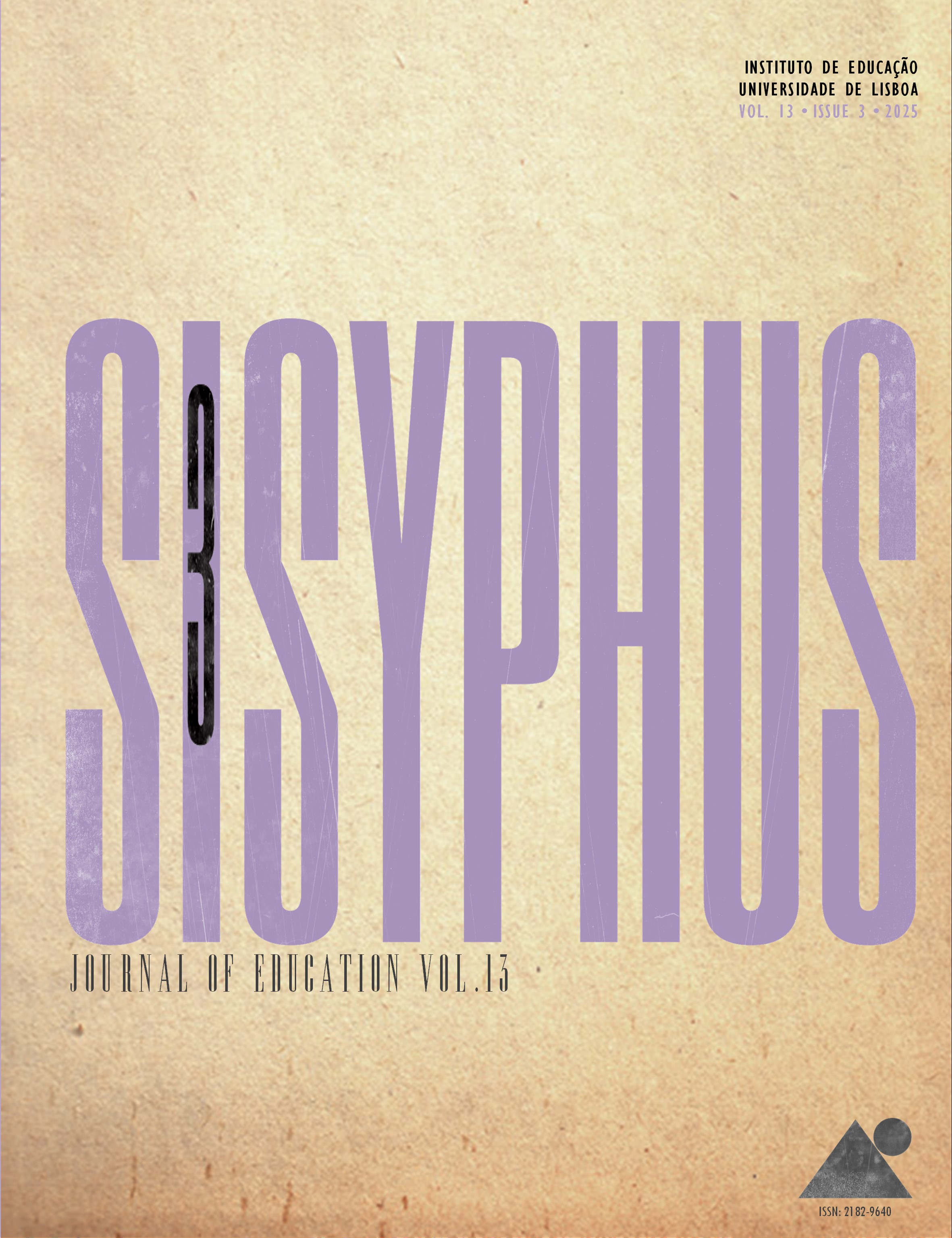
Culturas Científica y Digital en investigaciones que articulen universidad-escuela-sociedad
Vol. 13 Núm. 3 (2025)Editoras invitadas
Miriam Struchiner [Universidade Federal do Rio de Janeiro, Brasil] y Maria Elizabeth Bianconcini de Almeida [Pontifícia Universidade Católica de São Paulo, Brasil]Este número temático de Sisyphus presenta investigaciones que abarcan fundamentos, metodologías y análisis de experiencias que articulan la cultura científica y la cultura digital en contextos escolares, desde una perspectiva participativa, crítica y emancipadora, y basada en la integración universidad, escuela y sociedad.
Consta de 12 artículos de Portugal, Chile, España, Mozambique y diversas regiones de Brasil. Esto ofrece una diversidad de contextos, enfoques, participantes y prácticas, abordados en sus múltiples dimensiones (social, cultural, política, cognitiva, etc.), con énfasis en el pensamiento crítico, el currículo vivido, la ciudadanía democrática y las cuestiones sociocientíficas, basadas en la integración de la universidad, la escuela y la sociedad. Se espera que estos textos contribuyan al avance del conocimiento y planteen nuevas preguntas de investigación. -
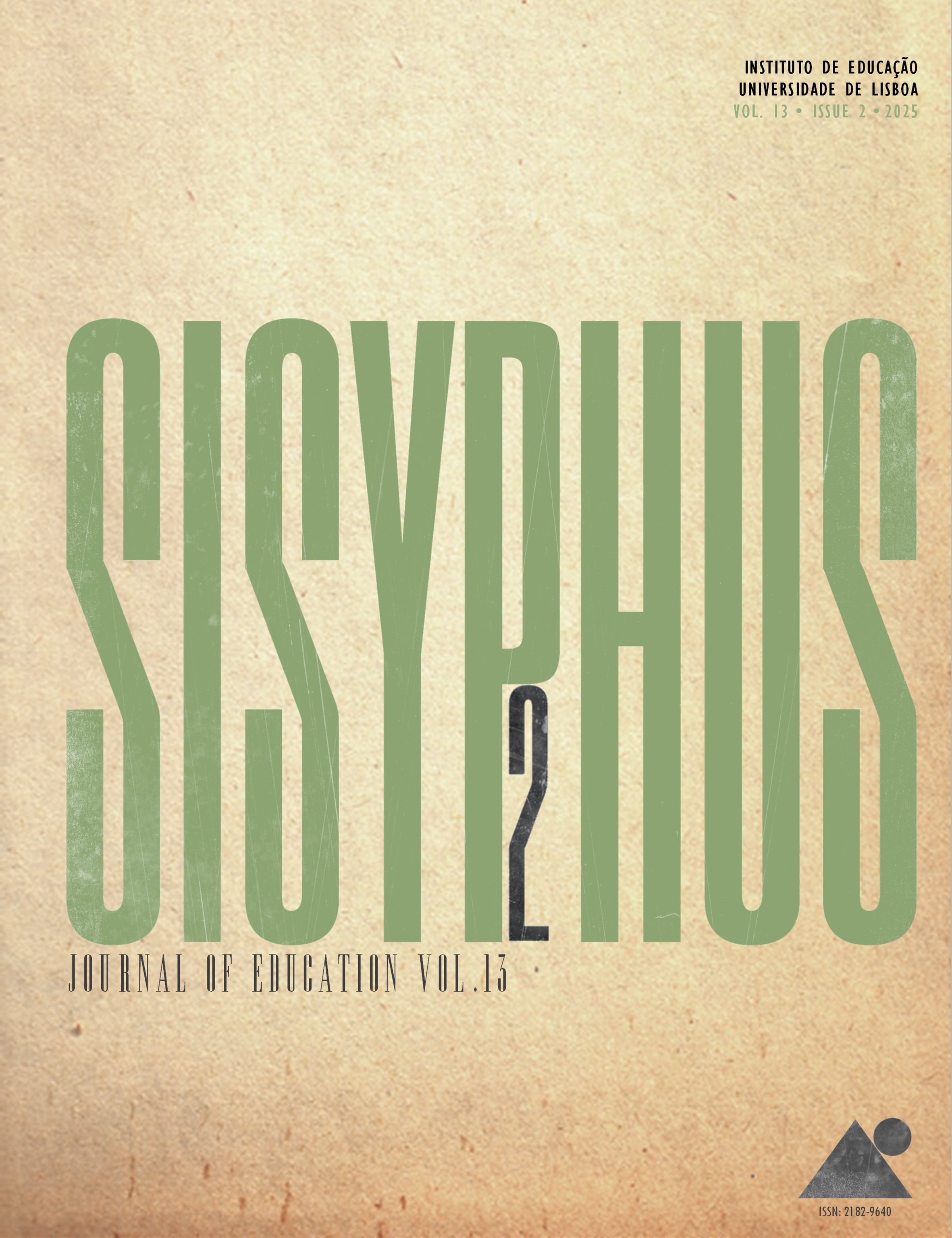
Temas de Investigación Educativa
Vol. 13 Núm. 2 (2025)Editores de Sisyphus [Org.]
[número solo com artículos enviados por el régimen de envío continuado] -
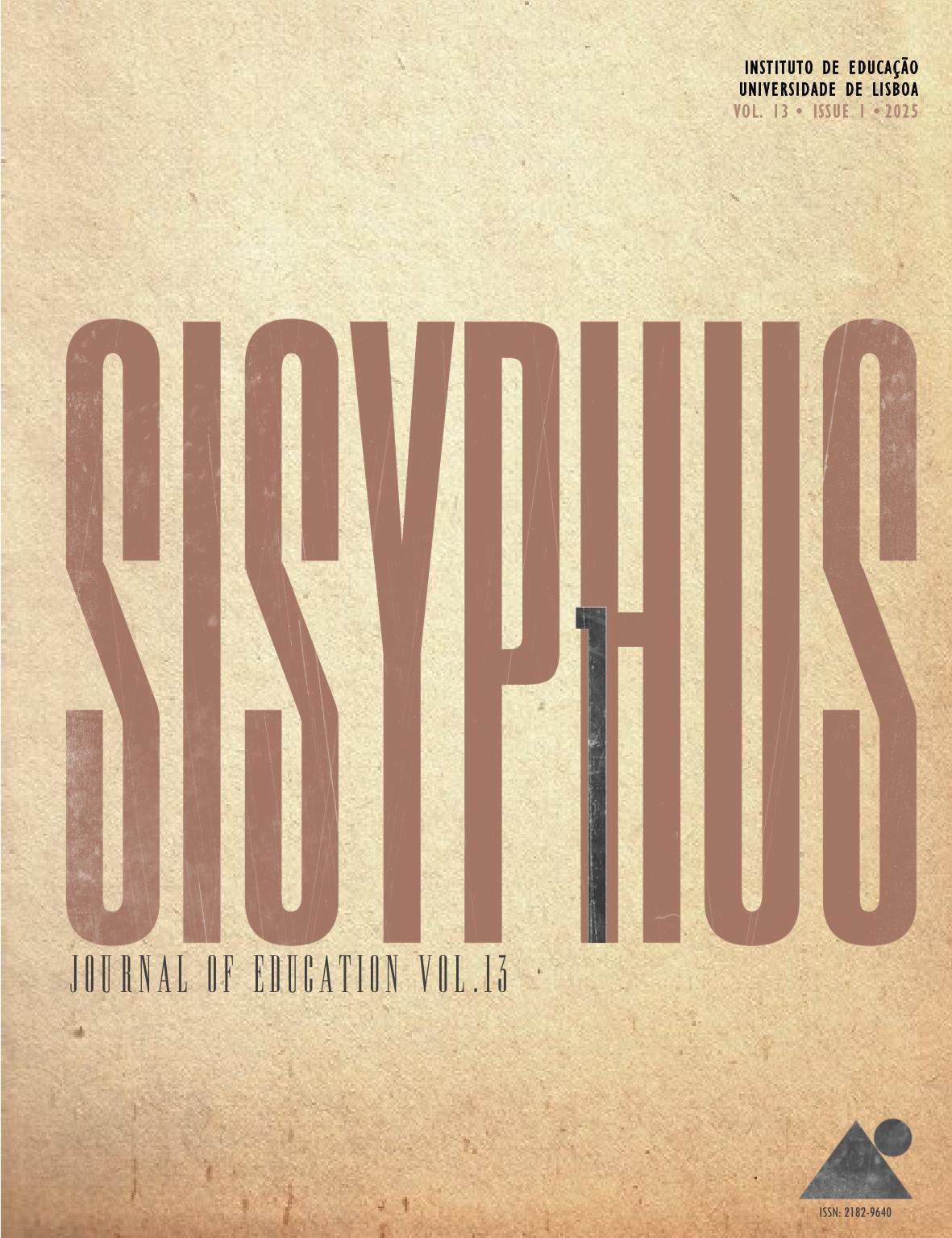
Educación en ciencias y su relación con otras educaciones en escenarios de cambio global
Vol. 13 Núm. 1 (2025)Editor invitado
William Manuel Mora-Penagos [Doctorado Interinstitucional en Educación, Universidad Distrital Francisco José de Caldas, Colombia]El siglo XXI enfrenta crisis tecnológicas, bélicas y ambientales que exigen un "reseteo humano" para redefinir el futuro de la humanidad. La educación en ciencias debe experimentar un giro sociopolítico y cultural, promoviendo la diversidad epistémica sin caer en la irracionalidad y enfrentando desafíos como la desinformación y el negacionismo. Este número de la revista Sisyphus reúne estudios cualitativos de investigadores de diversos países sobre la educación científica y sus intersecciones con el arte, la interculturalidad, el ecofeminismo y la decolonialidad. Los artículos exploran temas como la alfabetización científica, la interdisciplinariedad, la enseñanza inclusiva y la sostenibilidad, destacando la necesidad de una ciencia socialmente responsable para enfrentar los desafíos del Antropoceno.
-

Las Controversias Sociocientíficas en la Formación del Profesorado de Ciencias: Experiencias de investigación y perspectivas
Vol. 12 Núm. 3 (2024)Editor invitado
Mario Quintanilla-Gatica [Departamento de Didáctica, Facultad de Educación, Pontificia Universidad Católica de Chile, Chile]Este monográfico tiene la finalidad de compartir diferentes producciones de innovación e investigación educativa en el campo de la didáctica de las ciencias experimentales desde una perspectiva sociocientífica crítica, con el objetivo de identificar, caracterizar y profundizar diferentes dimensiones y contextos que entregan evidencia y orientaciones teóricas, útiles y necesarias para la formación inicial y continua del profesorado de ciencias experimentales. Está configurado por 8 artículos provenientes de diferentes geografías y culturas institucionales que sin duda inspirarán las prácticas educativas y promoverán el pensamiento crítico en un mundo en compleja transformación donde la educación científica tiene un rol irreducible en el desarrollo profesional para intervenir y transformar la realidad.
-
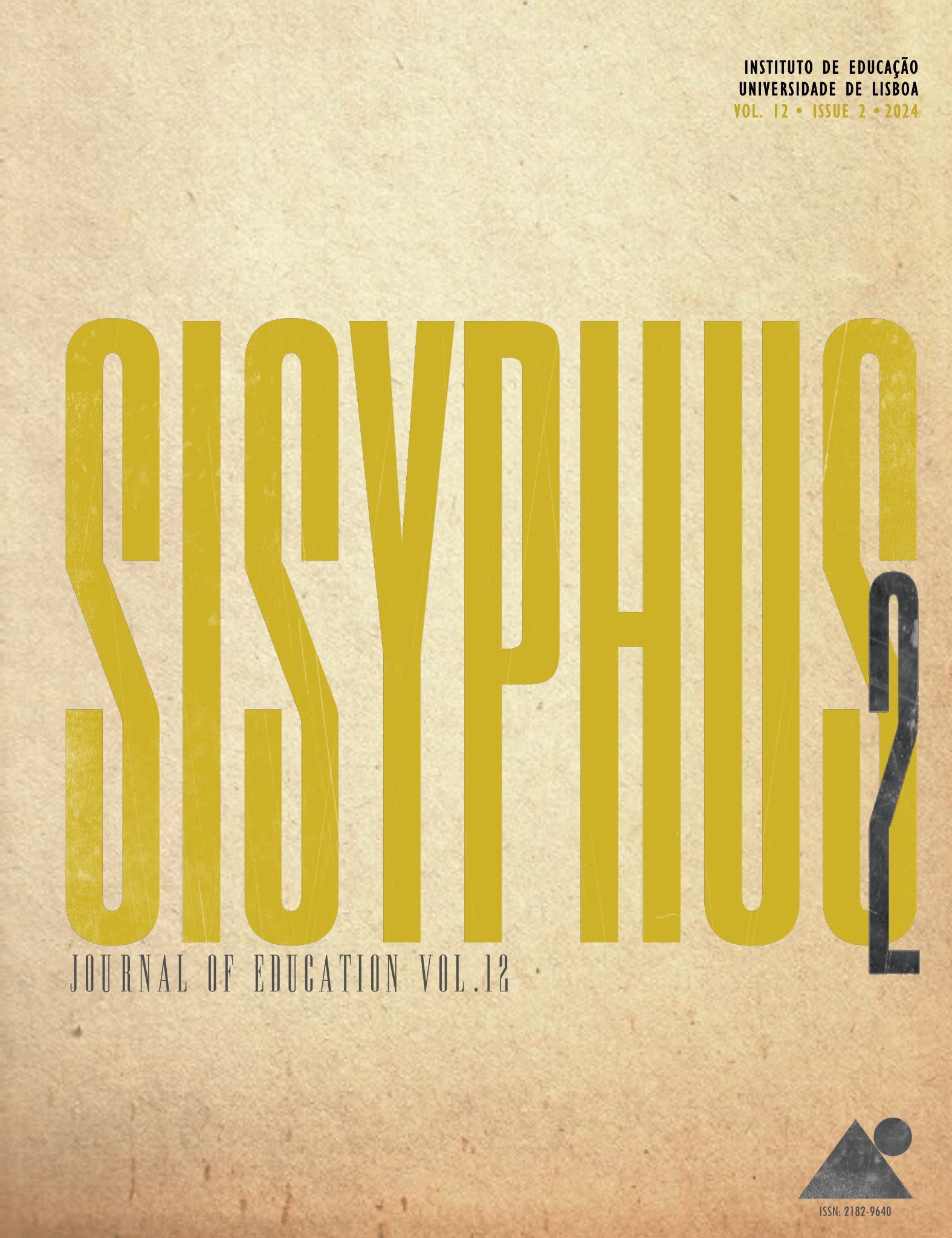
Temas de Investigación Educativa
Vol. 12 Núm. 2 (2024)Editores de Sisyphus [Org.]
[número solo com artículos enviados por el régimen de envío continuado] -

La clase importa: clase social y educación de adultos
Vol. 12 Núm. 1 (2024)Editores invitados
Fergal Finnegan [Department of Adult and Community Education, Maynooth University, National University of Ireland, Irlanda]
Barbara Merrill [Centre of Lifelong learning, University of Warwick, Reino Unido]Durante los últimos sesenta años, la clase social y el análisis de las clases sociales han sido un foco clave de la investigación educativa en muchos países y en diferentes contextos institucionales educativos, basándose en una variedad de enfoques teóricos como el weberiano, el marxista, el durkheimiano, etc. En particular, la investigación y la literatura han iluminado el poder de la educación para reproducir y perpetuar las desigualdades de clase. Históricamente, la clase se ha abordado de una manera diferente en la investigación y la práctica de la educación de adultos, con un mayor enfoque en la agencia y la experiencia vivida. Esto está relacionado con la influencia de la educación radical de adultos en la erudición y la pedagogía en algunos países, como la Workers Educational Association en el Reino Unido, el movimiento de escuelas secundarias populares en Escandinavia y la educación popular en América Latina, que estaban conectados con el movimiento obrero democrático y socialista, movimientos de clases que promovieron la solidaridad de clases y la transformación social (si bien entendidas de maneras muy variadas). En gran medida este horizonte ha desaparecido, o al menos se ha reconfigurado. Las investigaciones sobre la clase social también reconocen cada vez más que la clase no existe de forma aislada, sino que se cruza con otras formas de desigualdad, como el género y la raza. Igualmente importante, los estudios indican que aunque las relaciones de clase y la política están cambiando, las clases todavía importan. Sin embargo, si bien existe un conjunto de estudios sobre la experiencia de la clase trabajadora y un gran interés en cuestiones de desigualdad en la educación de adultos contemporánea, es sorprendente cuán rara vez la clase está en primer plano y hasta qué punto los estudios sobre educación de adultos están desconectados de los nuevos trabajos sobre la clase en el ámbito social. ciencia. Este número especial tiene como objetivo generar discusión y debate sobre este tema.
-
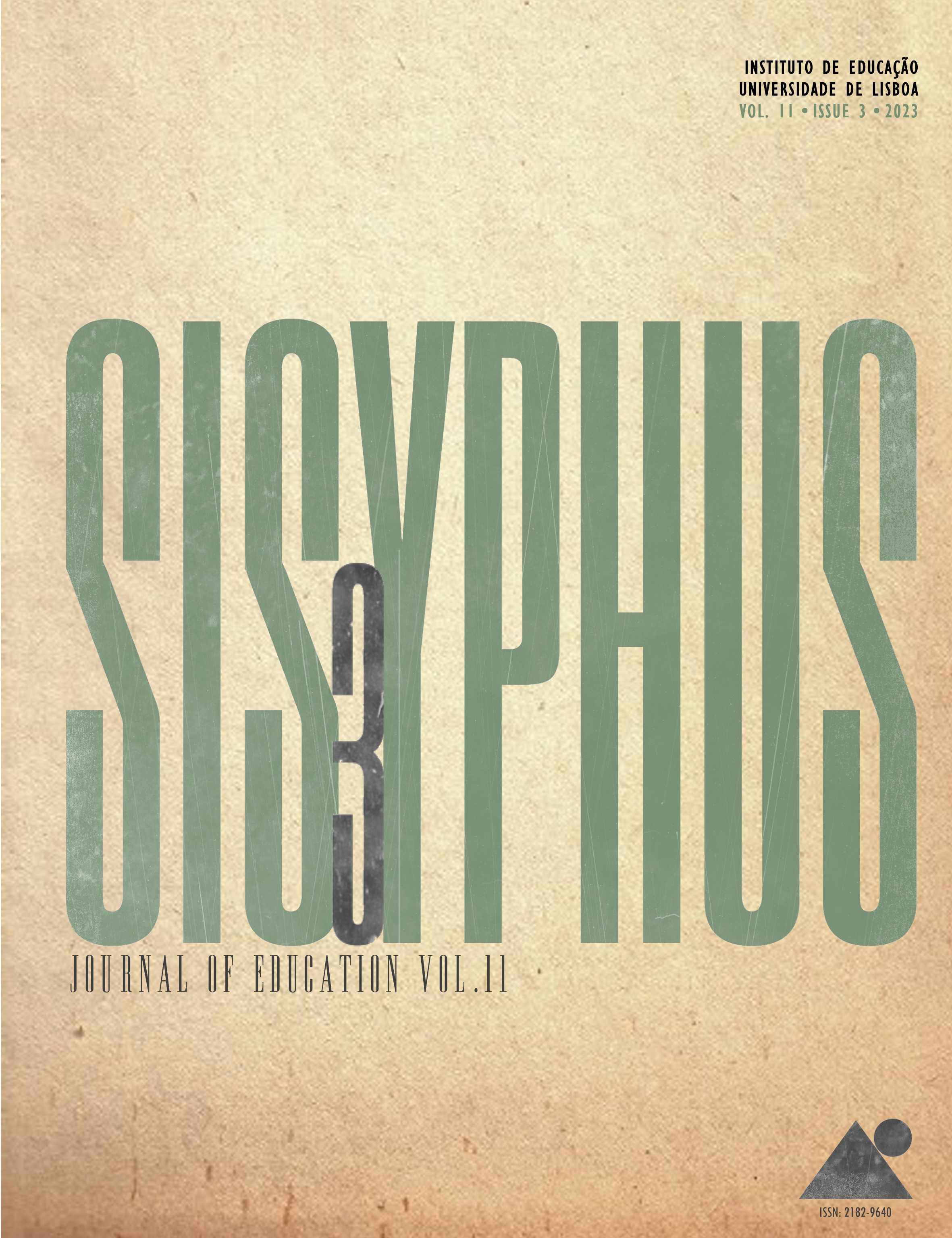
Enfoques Críticos en Tecnología Educativa
Vol. 11 Núm. 3 (2023)Editoras invitadas
Marina Bazzo de Espíndola [Universidade Federal de Santa Catarina (UFSC), Brasil]
Mariona Grané [Universitat de Barcelona, España]Este monográfico se propone reunir producciones del campo de la investigación en educación y tecnologías desde una perspectiva crítica, con el objetivo de profundizar en la comprensión de las implicaciones y posibilidades de las tecnologías digitales en y para los contextos educativos. Se compone de 9 artículos que tratan la relación entre educación y tecnologías digitales y exploran: la formación del profesorado para superar la mera instrumentalidad de las tecnologías, discutiendo las posibilidades crítico-reflexivas, la formación plena de los estudiantes ante los retos contemporáneos, cómo estos retos impactan en los currículos escolares y cómo necesitamos discutir qué y por qué enseñar en relación a las tecnologías digitales; finalmente, se discuten las propias tecnologías educativas y su desarrollo desde una perspectiva crítica.
-
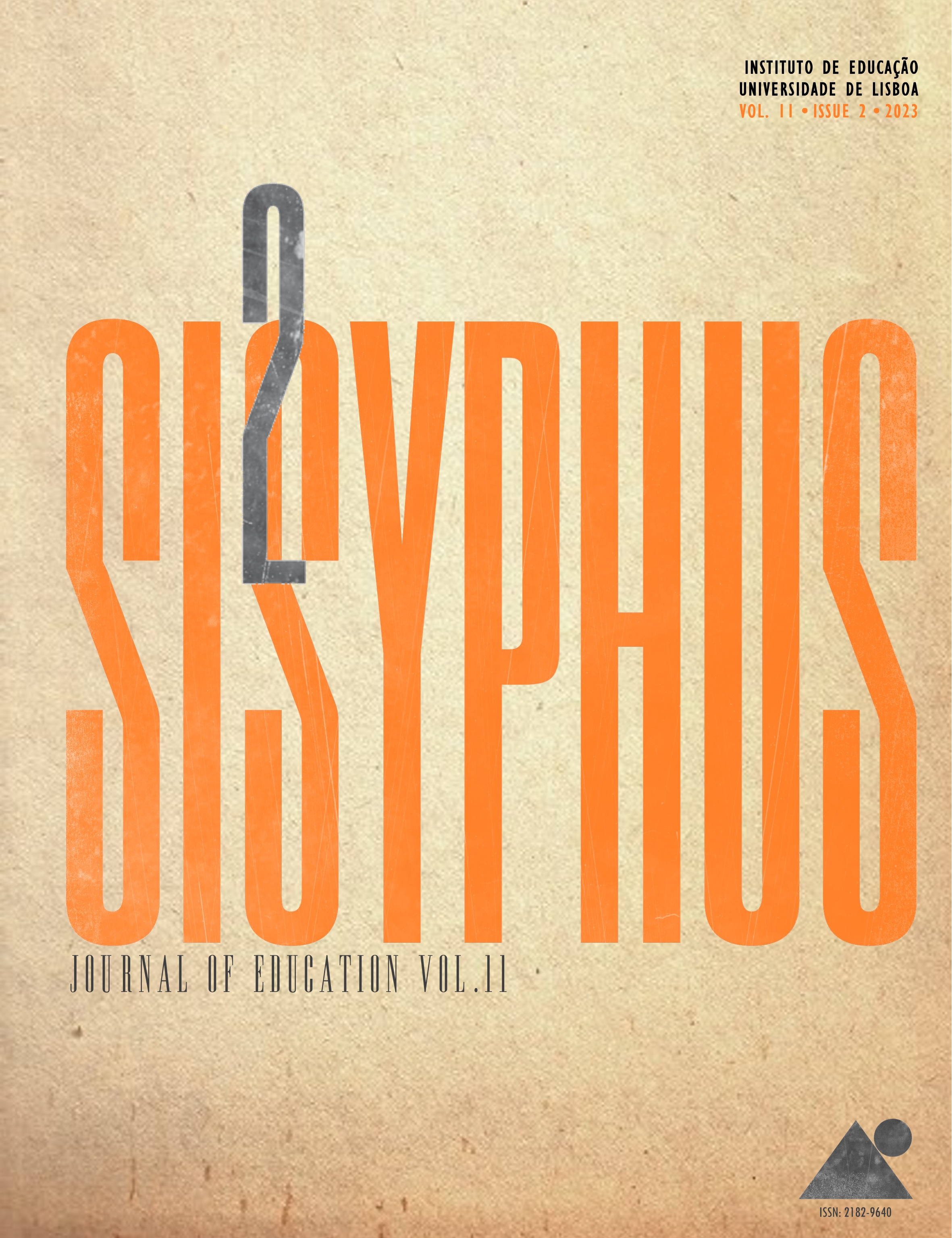
Pensar la Educación en Tiempos de Transición
Vol. 11 Núm. 2 (2023)Editores invitados
Joaquim Pintassilgo, Ana Paula Caetano, Estela Costa, Maria João Mogarro, Mónica Baptista [Universidade de Lisboa, Portugal]Vivimos tiempos de transición, incluso en el campo de la educación. El modelo de escuela que heredamos de los siglos XIX y XX ha sido cuestionado de muchas maneras. Las sociedades han cambiado mucho y, por lo tanto, también los contextos educativos. El acceso a la educación se ha vuelto universal y los públicos escolares se han vuelto mucho más diversos, tanto social como culturalmente. Las tecnologías digitales han traído nuevas formas de acceder al conocimiento y nuevos desafíos. Pero también son tiempos paradójicos. Las críticas a la organización escolar y las tendencias hacia la desescolarización o la privatización corren paralelas a la demanda de una escuela pública de calidad, entendida como espacio de socialización y construcción de una ciudadanía democrática, universal, pero, a la vez, plural. La apuesta por una educación cada vez más inclusiva convive con la toma de conciencia de las desigualdades que se acentúan, por ejemplo, en el acceso al mundo digital. El culto al individualismo y la mercantilización surgen junto con la militancia por causas cívicas, sociales o ambientales. Así, en estos tiempos de transición, es importante pensar en el(los) futuro(s) de la Educación. Eso es lo que buscamos en el componente monográfico de este número, a través de un conjunto diverso de perspectivas que podemos organizar en dos grandes ejes temáticos: 1) Educación, diversidad y nuevos entornos de aprendizaje, con énfasis en las prácticas de inclusión en contextos formales y no formales de educación y para el aprendizaje en sociedades tecnológicamente avanzadas; 2) Educación y cambio, con énfasis, por un lado, en la relación entre regulación, autonomía y “accountability” y, por otro lado, en nuevos modelos de desarrollo profesional docente.
-

El tiempo y las Temporalidades en el Aprendizaje y la Educación (de Adultos)
Vol. 11 Núm. 1 (2023)Editora invitada
Sabine Schmidt-Lauff [Helmut Schmidt University - University of the Federal Armed Forces Hamburg, Alemania]Con la era moderna, el tiempo se replantea radicalmente como expresión de movimientos bajo el aspecto de su uso y formabilidad. Debido a las ideas modernas de la naturaleza del tiempo como algo socioculturalmente cambiante e individualmente responsable, el tiempo ya no es algo dado objetivamente, sino un elemento de configuración altamente ambivalente y complejo. Como un elemento de crear, ordenar y controlar, el tiempo y las temporalidades son una parte fundamental del aprendizaje a lo largo de la vida. Estas observaciones dejan en claro cuán importante es el rastreo y la comprensión de los efectos del tiempo en la educación y el aprendizaje y cuán inevitable es la contextualización temporal-relacional. Este número especial, que consta de siete artículos, ilustra cómo están evolucionando los enfoques diferenciados relacionados con el tiempo en la investigación educativa y la pesquisa empírica. Este conjunto de artículos presenta conceptualizaciones teóricas, enfoques metodológicos, modelos epistemológicos e investigaciones empíricas sobre el tiempo y los fenómenos temporales que son de gran relevancia para la educación y el aprendizaje.
-
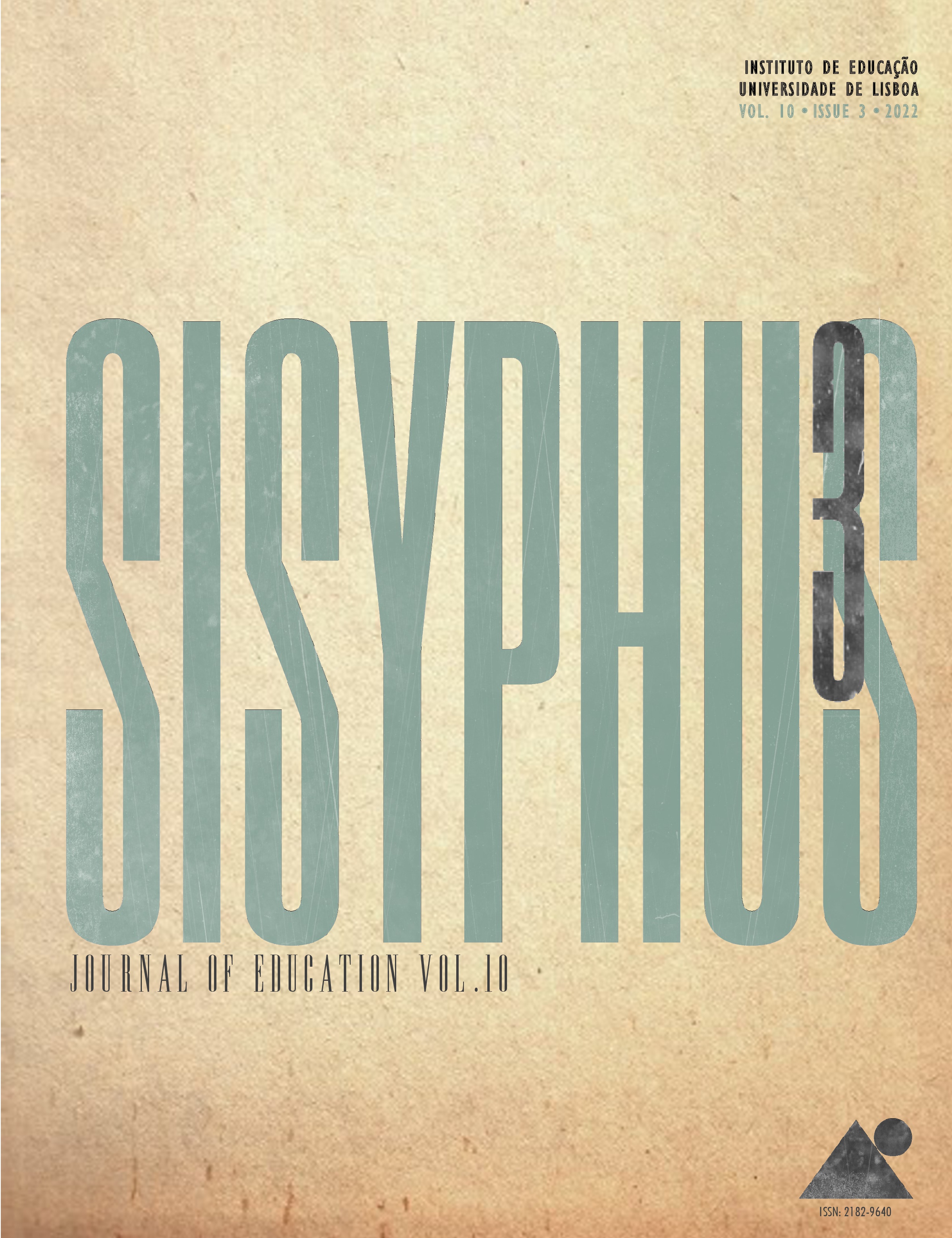
Escenarios de investigación en Educación Especial e Inclusiva
Vol. 10 Núm. 3 (2022)Editora invitada
Sani de Carvalho Rutz da Silva [Universidade Tecnológica Federal do Paraná, Brasil]Las políticas de Educación Especial y Educación Inclusiva han sido discutidas durante mucho tiempo en congresos, coloquios y publicaciones periódicas en varios países. Sin embargo, al considerar la inclusión de las personas con discapacidad en la educación regular, aún existen barreras que impiden que esta acción sea plenamente efectiva. La inclusión de las personas con discapacidad se realiza preferentemente en las escuelas regulares, espacio donde el estudiante se apropia de los conocimientos para que pueda tener una vida social más autónoma. Una de las vías de este acceso es a través del uso de las tecnologías como instrumento de mediación pedagógica para apoyar el proceso de enseñanza y aprendizaje, especialmente para los estudiantes con discapacidad. Este número especial, compuesto por nueve artículos, presenta un conjunto de investigaciones sobre desafíos para la difusión e implementación de políticas públicas, la formación continua de profesores para la actuación desde una perspectiva inclusiva, aportes del uso de los recursos tecnológicos educativos como la posibilidad de innovación pedagógica, entre otros. Tal investigación agudiza reflexiones sobre escenarios de investigación en Educación Especial e Inclusiva para el proceso de enseñanza y aprendizaje de personas con discapacidad.
-
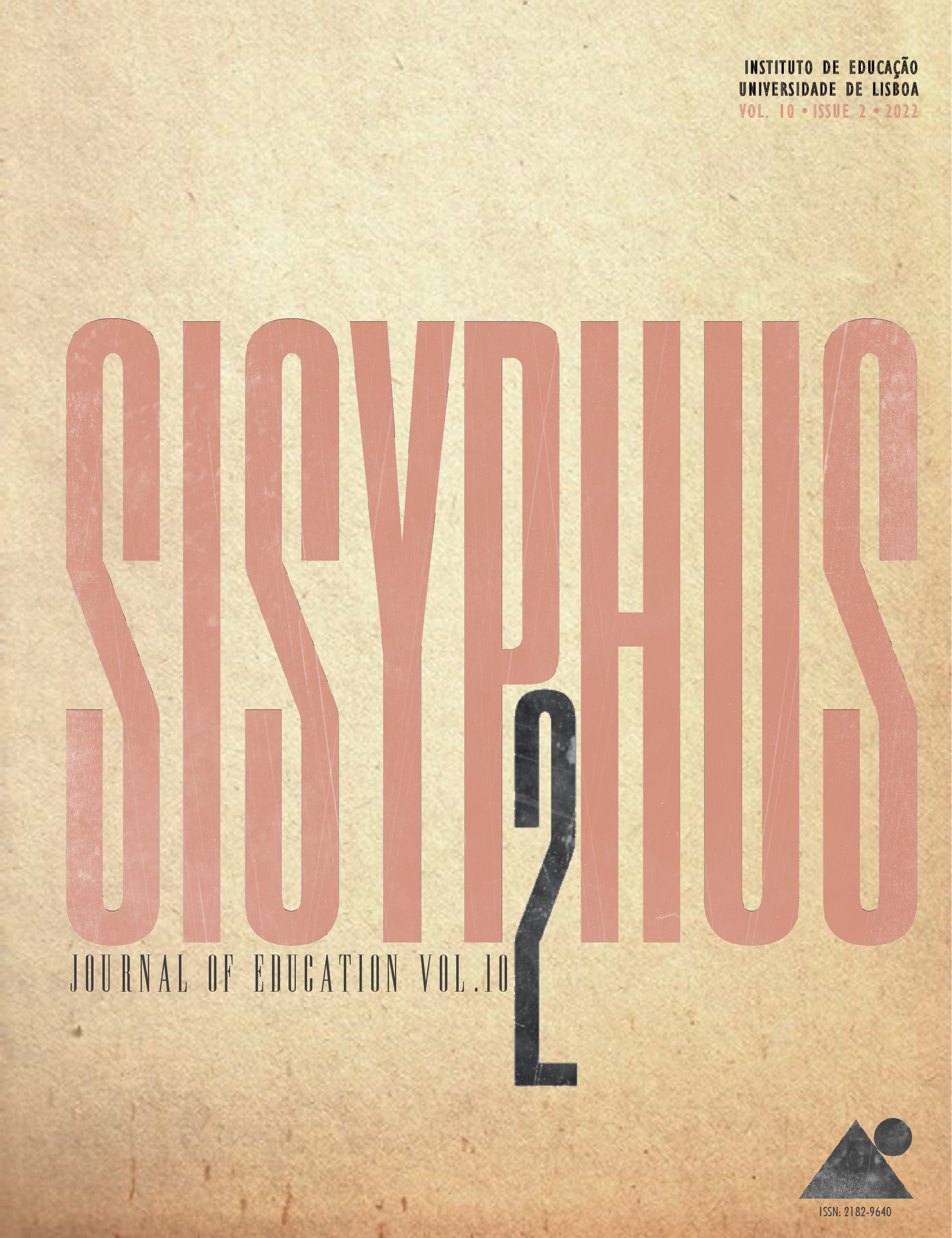
Perspectivas internacionales y análisis comparativo: políticas y prácticas de educación de adultos
Vol. 10 Núm. 2 (2022)Editoras invitadas
Paula Guimarães [Universidade de Lisboa, Portugal]
Regina Egetenmeyer [University of Würzburg, Alemania]
Natália Alves [Universidade de Lisboa, Portugal]El número temático de Sisyphus pretende contribuir paraa comprender la diversidad, la fragmentación y la complejidad de la comparación en la investigación sobre educación de adultos, centrándose en las políticas y prácticas desarrolladas en diferentes partes del mundo. Los artículos que se incluirán en este número son el resultado de la vívida discusión que tuvo lugar en la Academia de Educación de Adultos INTALL 2021, promovida por la Universidad de Würzburg, cuando la pandemia de COVID-19 tuvo un impacto significativo en la vida de todos, en especial en aquellos participaron en esta iniciativa educativa. Con la participación de más de 60 estudiantes y 20 docentes de instituciones de educación superior de los 5 continentes, la Academia de Educación de Adultos INTALL es un evento significativo para reflexionar críticamente sobre la comparación con la educación, cuando una situación de salud aún restringe la movilidad y la enseñanza presencial.
-

Temas de Investigación Educativa
Vol. 10 Núm. 1 (2022)Editores de Sisyphus [Org.]
[número solo com artículos enviados por el régimen de envío continuado] -
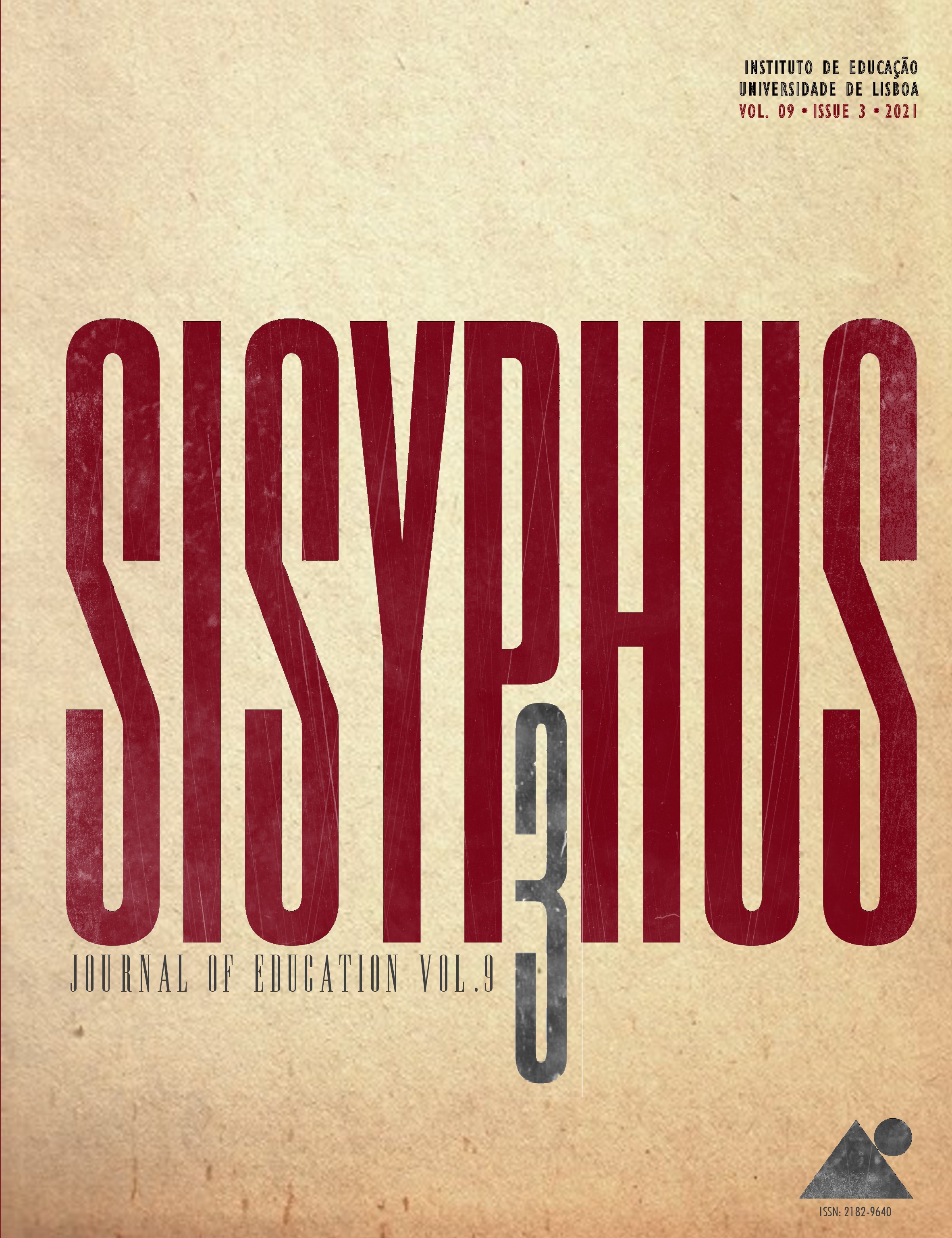
Temas de Investigación Educativa
Vol. 9 Núm. 3 (2021)Editores de Sisyphus [Org.]
[número solo com artículos enviados por el régimen de envío continuado] -
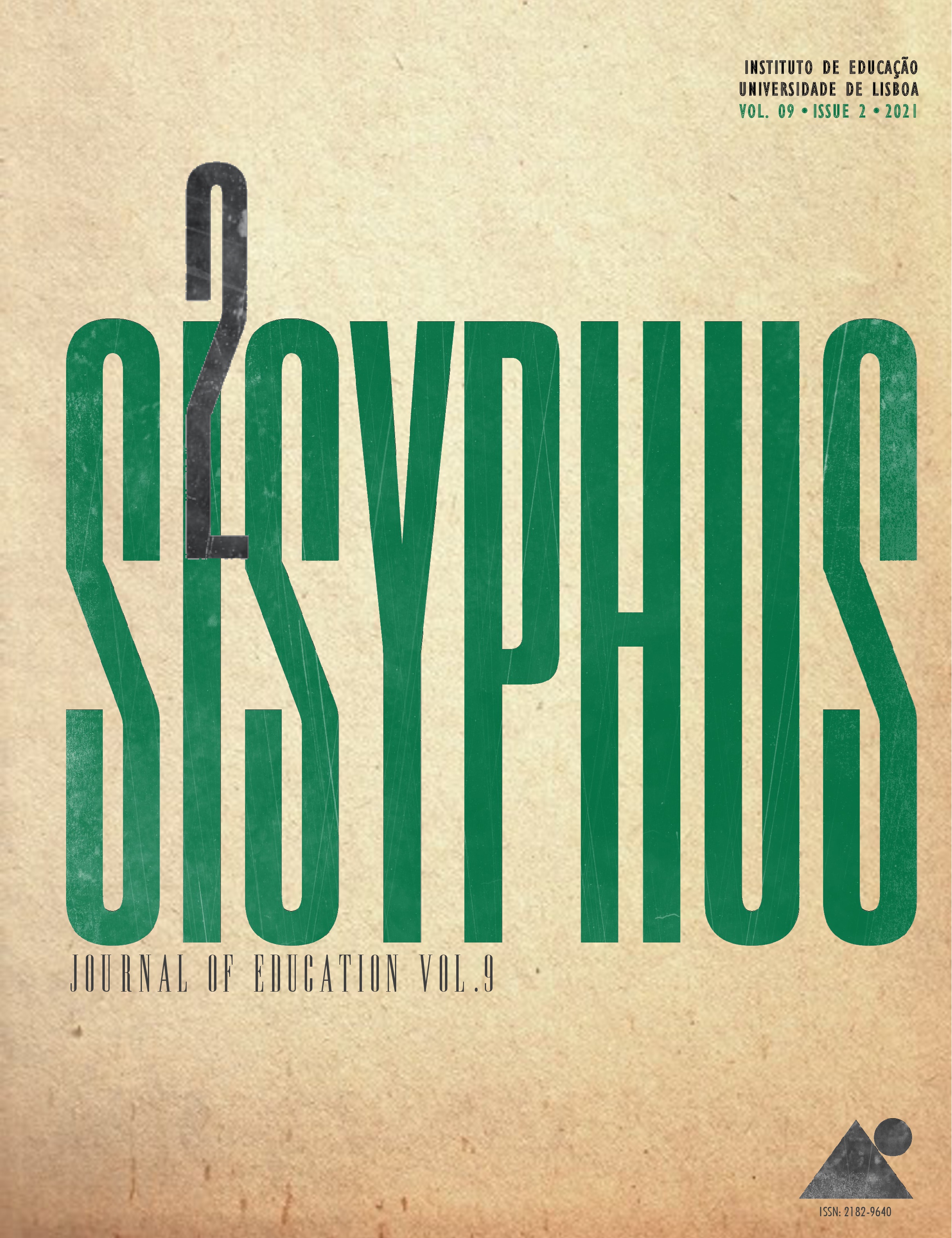
Colaboración en la Formación de Profesores que Enseñan Matemáticas
Vol. 9 Núm. 2 (2021)Editora invitada
Márcia Cristina de Costa Trindade Cyrino [Universidade Estadual de Londrina, Brasil]La colaboración destaca por su potencial en la formación de docentes que enseñan matemáticas, para promover procesos de interacción entre docentes, futuros docentes, formadores, coordinadores, entre otros agentes educativos, y, por tanto, un entorno de aprendizaje para todos los involucrados en estos procesos de interacción. Este número especial consta de nueve artículos que pueden contribuir a un debate cualificado sobre las potencialidades y dificultades encontradas en la búsqueda de un entorno colaborativo.
-
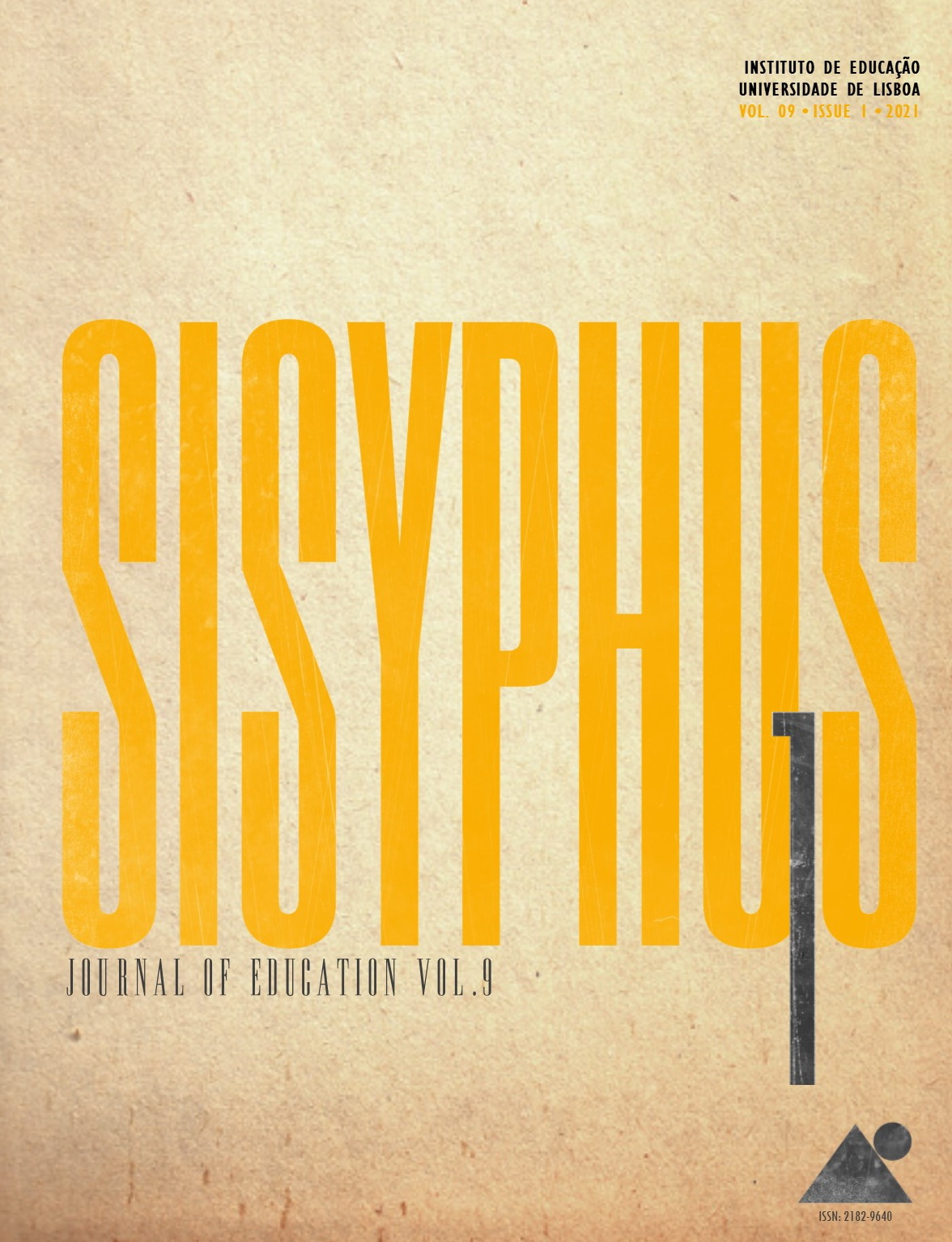
Temas de Investigación Educativa
Vol. 9 Núm. 1 (2021)Editores de Sisyphus [Org.]
[número solo com artículos enviados por el régimen de envío continuado] -
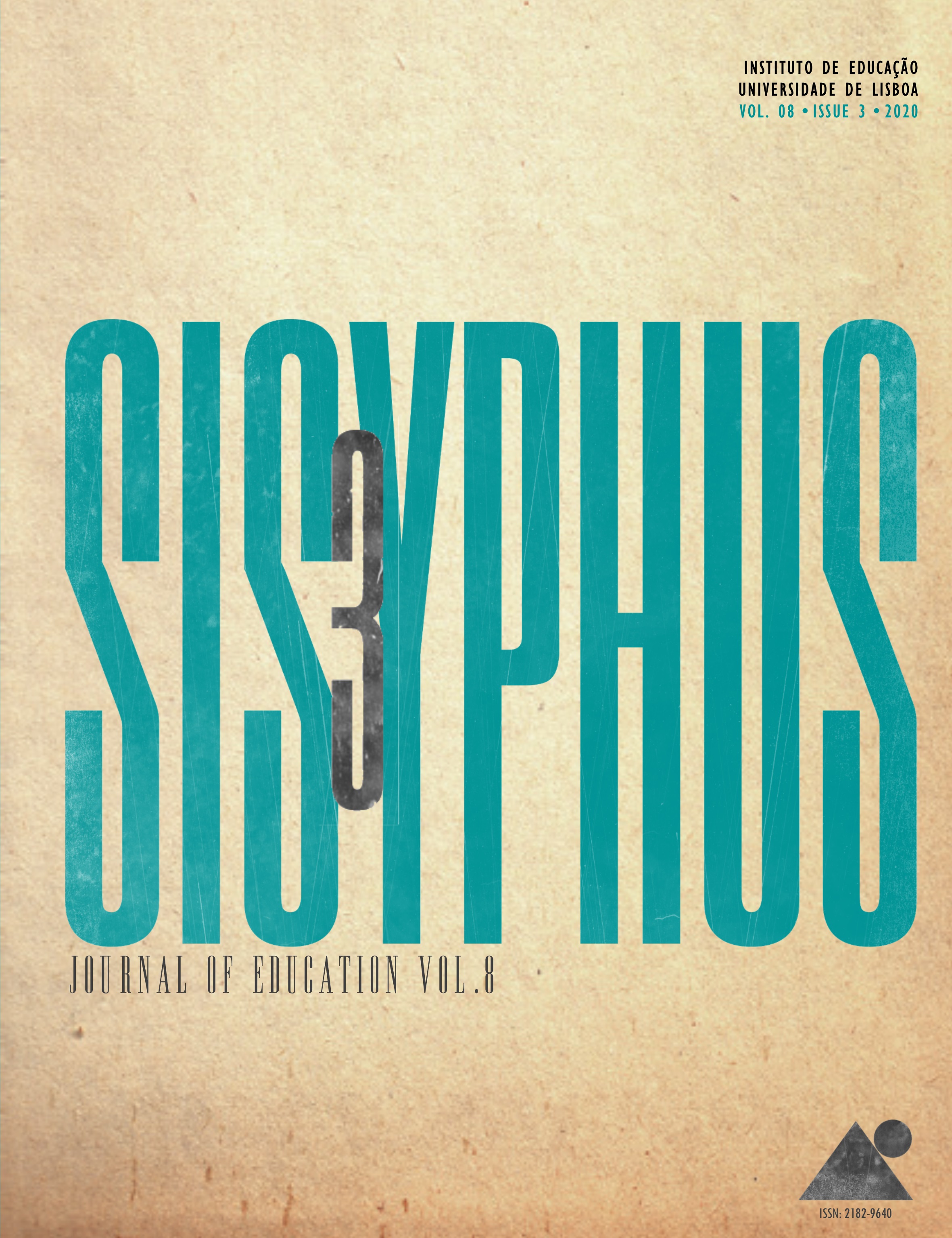
Autores Clásicos, Nuevas Perspectivas: ¿Es Necesario Reconceptualizar la Emancipación?
Vol. 8 Núm. 3 (2020)Editor invitado
Danny Wildemeersch [Katholieke Universiteit Leuven, Bélgica]La educación emancipadora se convirtió en una noción importante para los pedagogos críticos a partir de los años sesenta y setenta del siglo XX. Varios 'viejos maestros' inspiraron entonces a los pedagogos con su interpretación de este concepto. Hoy, los tiempos han cambiado profundamente. La pregunta ahora es si estas interpretaciones siguen siendo válidas. ¿Es necesario reconsiderarlos? ¿Hasta qué punto siguen siendo útiles las ideas de los 'viejos maestros'? ¿Qué elementos están desactualizados? Seis contribuciones abordan estas preguntas que nos recuerdan las ideas de Paulo Freire, John Dewey, Bruno Latour, Ivan Illich, Jacques Rancière y Axel Honneth.
-
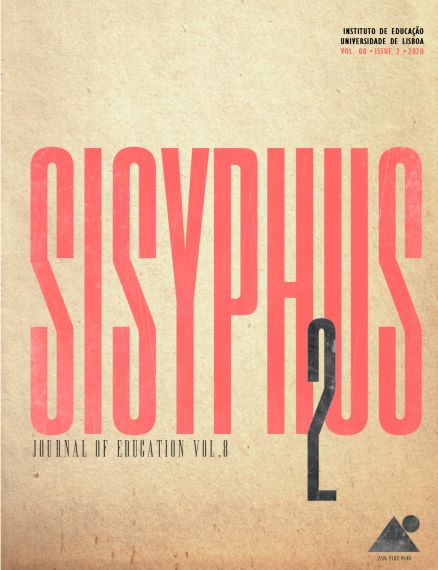
Temas de Investigación Educativa
Vol. 8 Núm. 2 (2020)Editores de Sisyphus [Org.]
[número solo com artículos enviados por el régimen de envío continuado] -
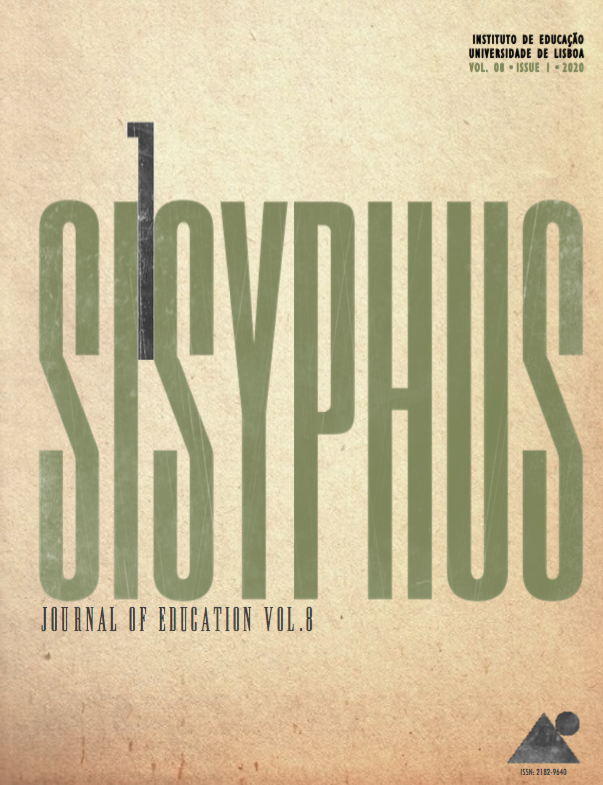
Políticas Educativas y Cambios en la Profesión Docente
Vol. 8 Núm. 1 (2020)Editoras invitadas
Dalila Andrade Oliveira [Universidade Federal de Minas Gerais / Universidade Federal da Paraíba, Brasil]
Sofia Viseu [Universidade de Lisboa, Portugal]Este número temático tiene como objetivo presentar un conjunto de estudios con una amplia base empírica que reflexione sobre los efectos en la reestructuración de la profesión docente de los cambios que tienen lugar en las políticas educativas contemporáneas. Más precisamente, desde las geografías latinoamericanas, se muestra cómo se han operado los procesos de reconfiguración de la profesión docente en el contexto de los procesos de regulación transnacional de la educación. En este sentido, el número lo invita a reflexionar sobre los cambios en el trabajo y la profesión docente, es decir, en las trayectorias formativas y socioprofesionales, en los perfiles de los docentes y en las modalidades de ingreso, evaluación y progresión profesional, a las cuales las políticas se inspiraron en las ideas de Nueva Gestión Pública, cuya circulación transnacional se asocia con la intervención reguladora de múltiples organizaciones internacionales, a través de procesos de agenda y rule-setting y rule-following.
-
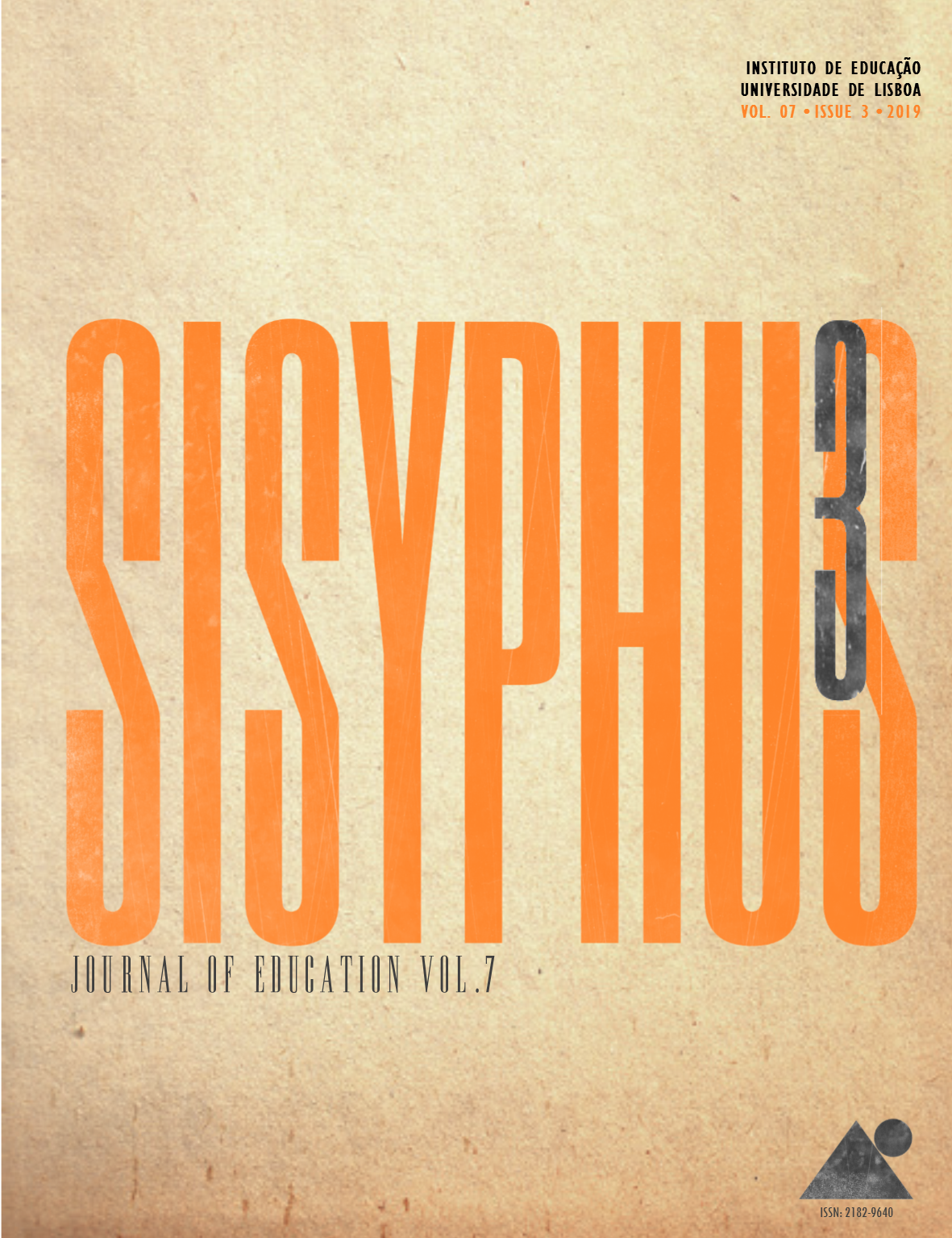
Siglo XXI: Ejercicio de incertidumbre
Vol. 7 Núm. 3 (2019)Editores invitados
Candido Alberto Gomes [Cátedra UNESCO Juventude, Educação e Sociedade, Brasil]
João Casqueira Cardoso [Universidade Fernando Pessoa / CEPESE, Porto, Portugal]Para ingresar este número, los editores suponen que todo se ha vuelto más complejo. La relación del hombre con su entorno, la relación del hombre con los demás y la relación del hombre consigo mismo tienden a cambiar. Siempre con poca memoria, a pesar de la enseñanza de la historia, la filosofía e, incluso ahora, la educación, las sociedades contemporáneas han desarrollado nuevas formas de pisotear los derechos y la integridad de las diversas especies. ¿Cómo pensar sobre la educación en este contexto? ¿Cómo repensar las formas y fórmulas de la Educación, desde una perspectiva más amplia, pero sin descuidar los particularismos? ¿Cuáles son las perspectivas que ofrecen los nuevos enfoques que, aunque prometedores, pueden no estar acompañados de hechos? Estas diversas preguntas hacen eco de las contribuciones presentadas en este número. Diversas contribuciones, pero con el vínculo común de proponer una reflexión lo más práctica posible sobre el mañana.
-
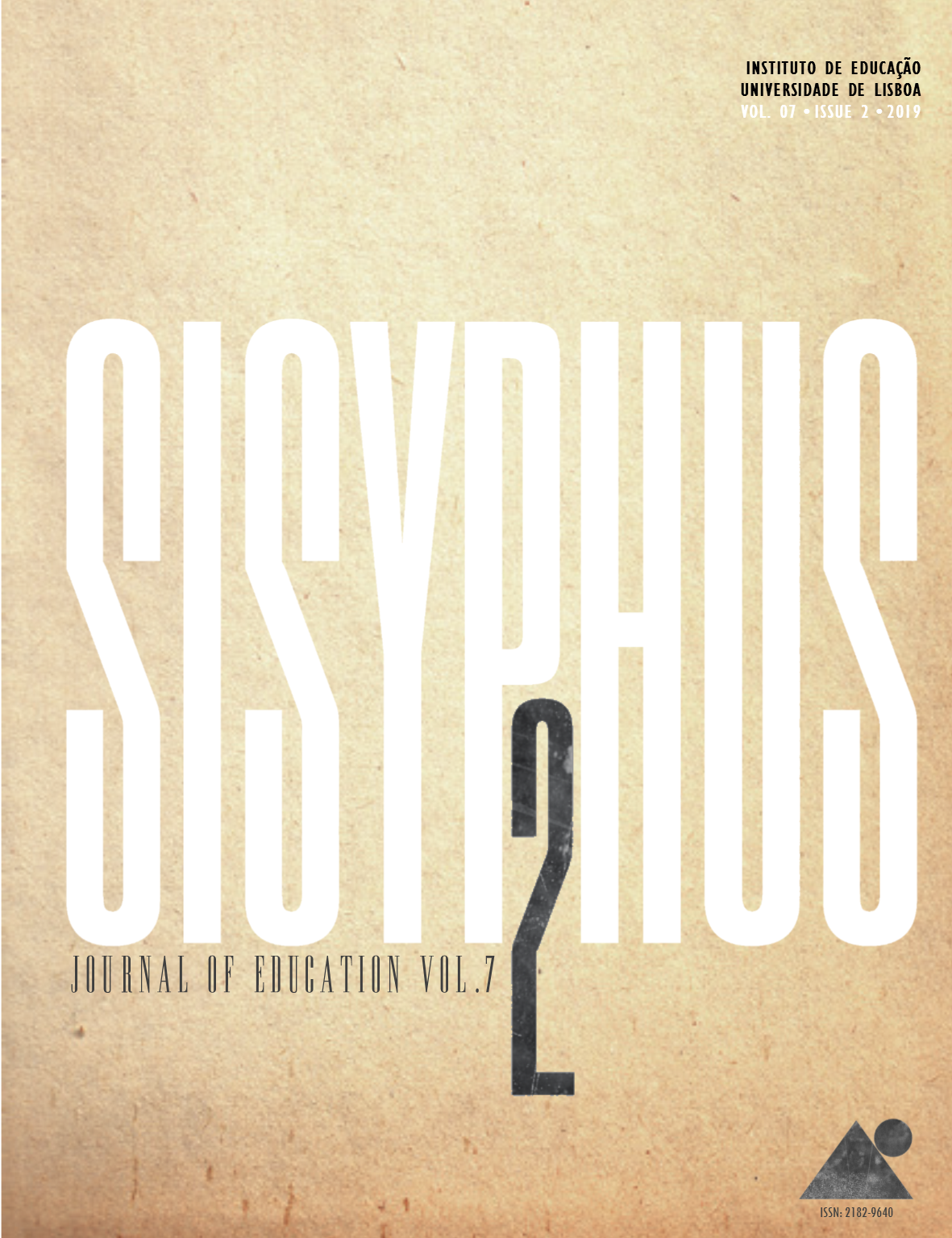
Aprendizaje a lo Largo de la Vida
Vol. 7 Núm. 2 (2019)Editora invitada
Paula Guimarães [Universidade de Lisboa, Portugal]Depois da II Guerra Mundial e até à década de 1970, registou-se um forte incremento do progresso científico e tecnológico. Assistiu-se igualmente à massificação dos sistemas educativos, tendência esta acompanhada pelo descontentamento face aos modelos pedagógicos vigentes. A ideia de que os sujeitos se educavam ao longo da vida, através do conceito de educação permanente, surgiu neste âmbito nos finais da década de 1950, preconizada num primeiro momento pelo Conselho da Europa e mais tarde, em finais da década de 1960, pela UNESCO. Esta ideia surgia como uma nova proposta educativa que concedia maior protagonismo aos contextos não formais e informais de educação, formação e aprendizagem. Assente numa perspetiva democrática e humanista, a ideia incluía uma forte crítica ao modelo escolar tradicional, acusado de pouco flexível e desmobilizador da participação daqueles que se educavam, assim como pouco eficaz na promoção da igualdade de oportunidades e da mobilidade social ascendente (...)
-
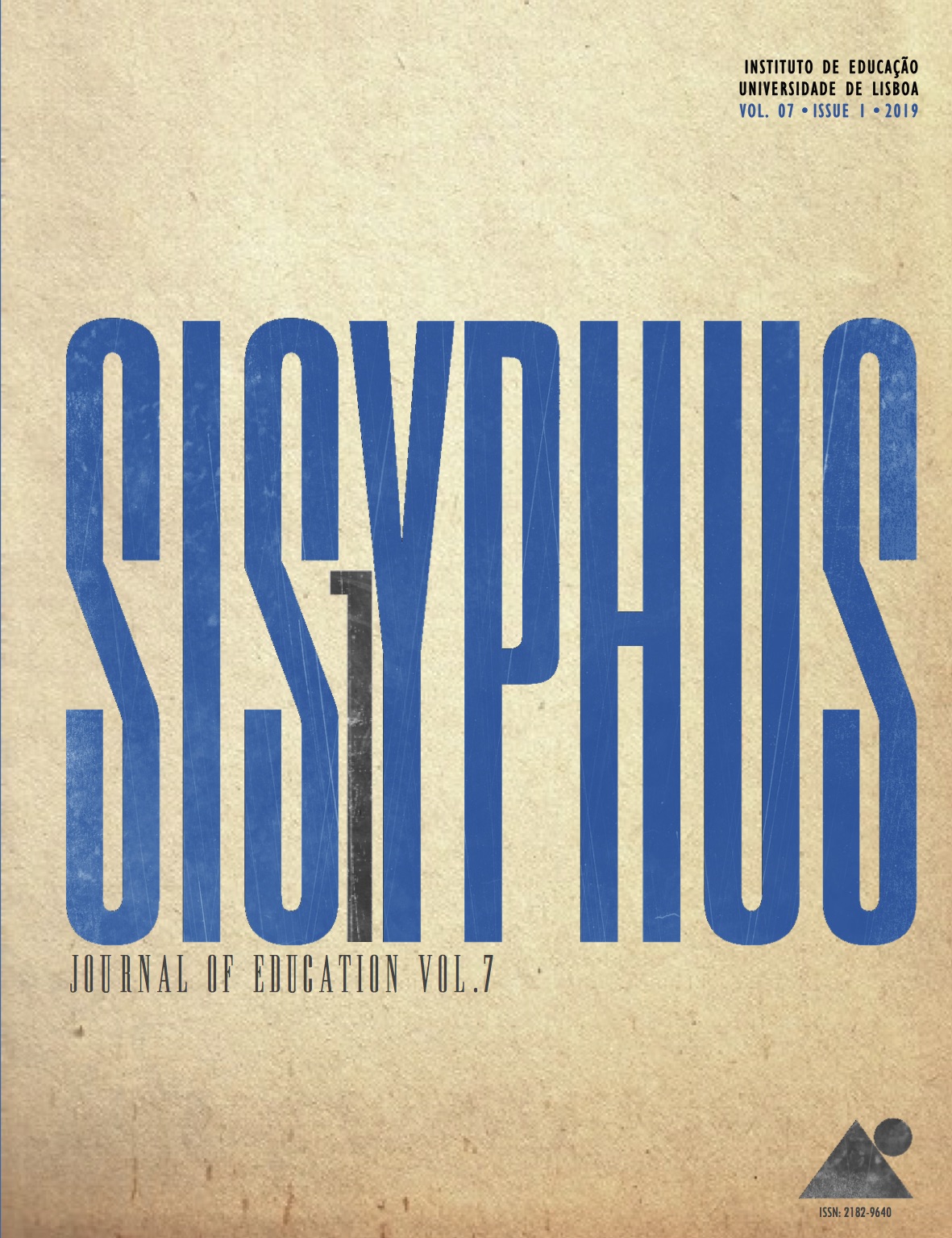
Aprendizaje Potenciado por la Tecnología
Vol. 7 Núm. 1 (2019)Editores invitados
Ana Pedro, João Piedade, João Filipe Matos [Universidade de Lisboa, Portugal]O número temático da Revista Sisyphus — Journal of Education que agora se apresenta estrutura-se em torno de um conjunto de textos selecionados entre os trabalhos apresentados no V Congresso Internacional TIC e Educação – ticEDUCA 2018. Subordinado à temática Technology Enhanced Learning | Aprendizagem Enriquecida por Tecnologias, o ticEDUCA 2018 decorreu em setembro de 2018, tendo sido um espaço privilegiado de partilha e reflexão sobre a investigação desenvolvida no domínio das Tecnologias Digitais na Educação.
Com vista à edição de um número especial da Sisyphus — Journal of Education que considerassem representativo da qualidade científica apresentada em setembro de 2018, os editores deste número convidaram um conjunto de autores a apresentar para esta edição uma versão mais completa e aprofundada das investigações apresentadas no ticEDUCA 2018, perfazendo, deste modo, sete artigos selecionados.
-
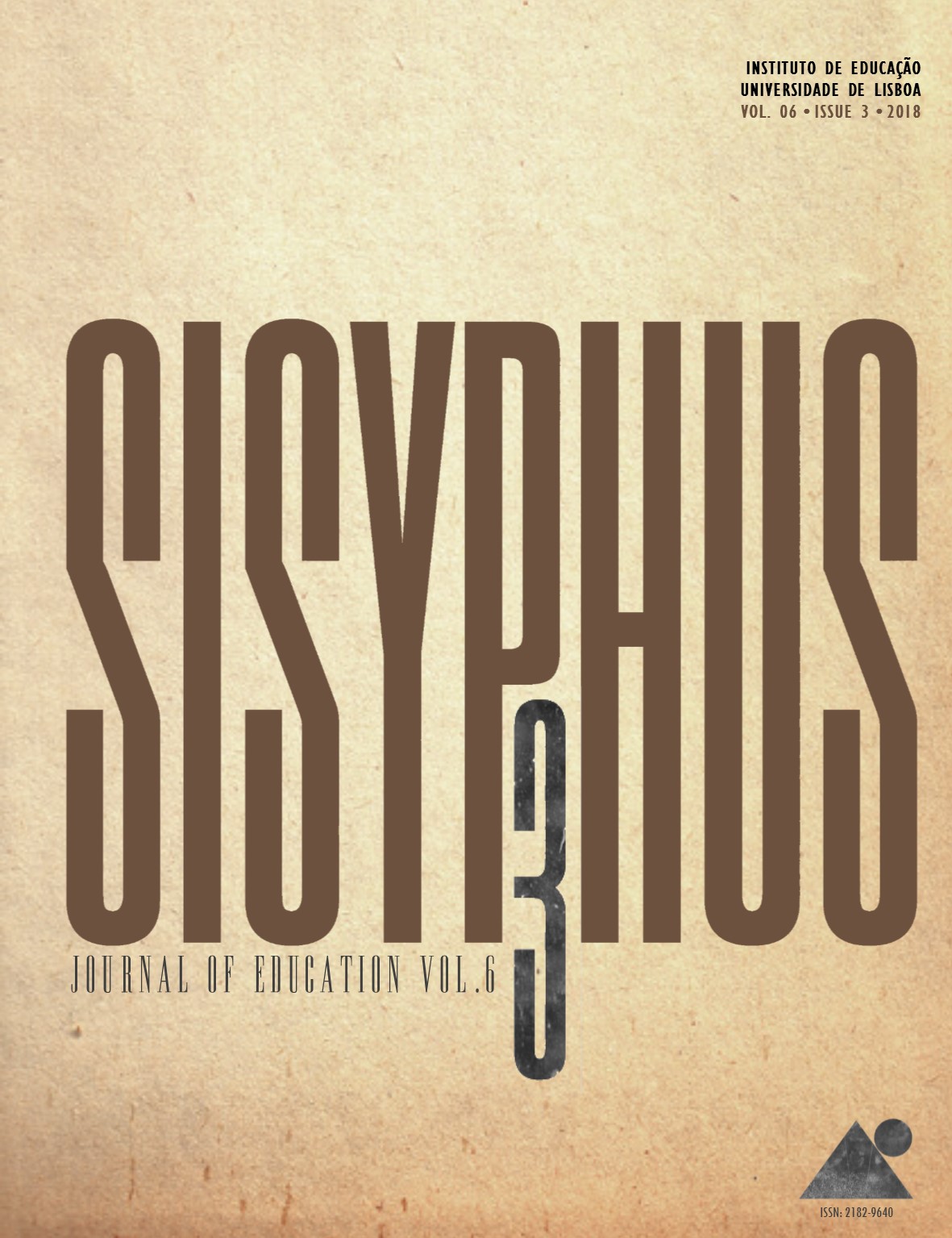
Temas de Investigación Educativa
Vol. 6 Núm. 3 (2018)Editores de Sisyphus [Org.]
[número solo com artículos enviados por el régimen de envío continuado] -
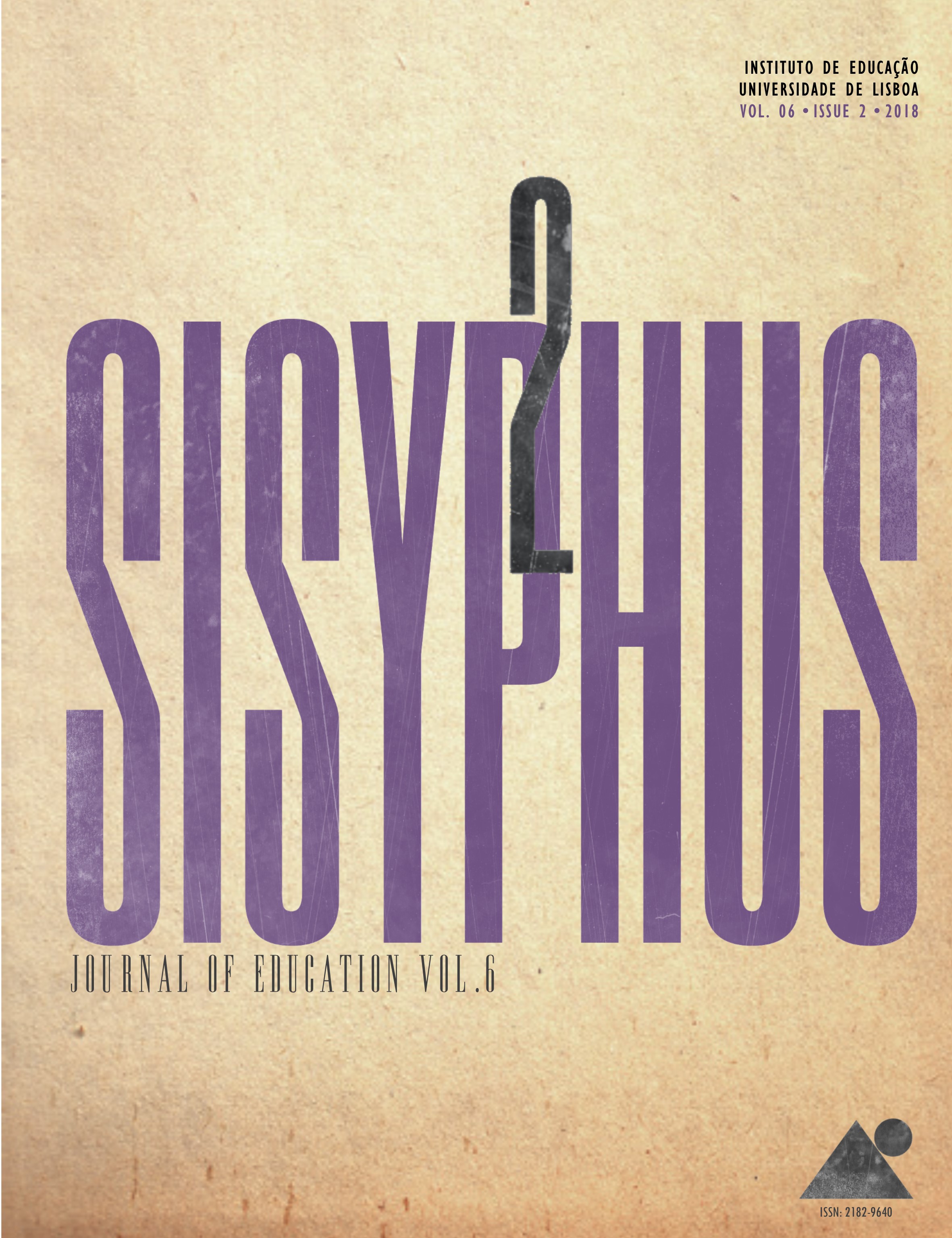
Educación, Salud y Cuidados [Éducation, Santé et Soins]
Vol. 6 Núm. 2 (2018)Editores invitados
Elizeu Clementino de Souza [Universidade do Estado da Bahia, Brasil]
Christine Delory-Momberger [Université Paris 13, France]By focusing on the notion of care as an enhancer of learning processes related to illness and biographical narratives of people with chronic diseases, this thematic issue about Education, Health and Care intends to socialize innovative studies at the interface between Education and Health. These texts approach methodological dimensions in the field of patients’ narratives with chronic diseases (sclerosis, hypertension, diabetes, cancer, AIDS, mental illness, among others) and imply considerations that rise from biographical experiences with illness, but also reviews on public health policies, training of health professionals and health care actions.This number seeks to increase the discussion between narratives, education, health and care, in dialogue with the principles of the patient therapeutic education, the interdisciplinary actions in the field of health, the work of health professionals and patient narratives. The dossier contributes with theoretical considerations about education and health, as well as shows results of researches dedicated to narratives and learnings with the disease, in the field of biographical research in education, narrative medicine and health care actions, whether with children or adults.
-
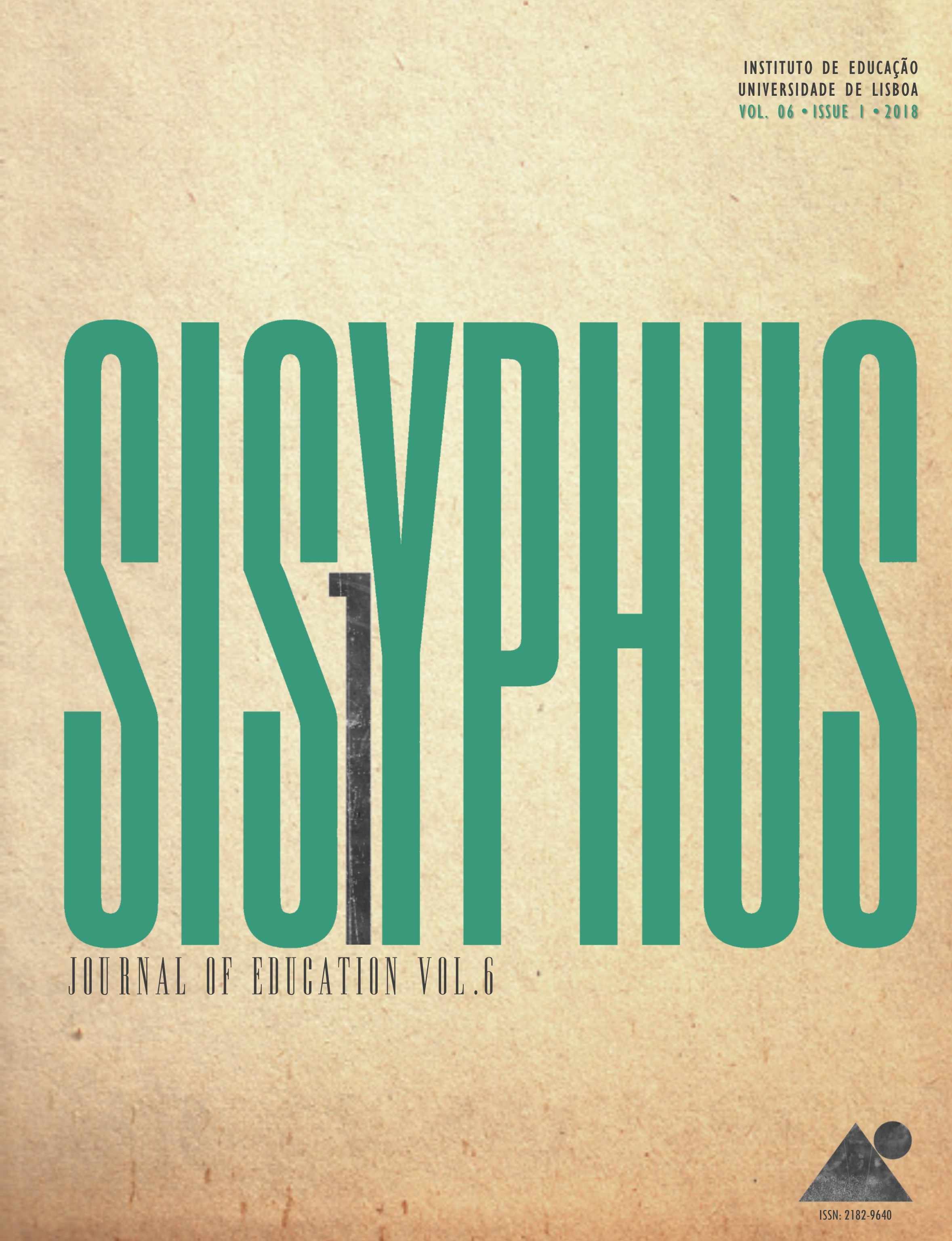
El Derecho a la Educación
Vol. 6 Núm. 1 (2018)Editores invitados
João Casqueira Cardoso [Universidade Fernando Pessoa, Porto, Portugal]
Candido Alberto Gomes [Consultor da UNESCO, Brasil]O direito à educação reveste-se de vários sentidos, como precioso fruto do Iluminismo e da Ilustração. Ora é concebido como fazedor de milagres, a alterar valores, atitudes e comportamentos de indivíduos e sociedades; ora é um direito programático e residual, importante apenas para a “formação de capital humano”, quando ele se caracteriza como efetivo. Este movimento pendular de otimismo e pessimismo educativos, observado em diferentes períodos, em momentos solitários ou em momentos simultâneos, na verdade não faz jus ao direito à educação. É possível, ao mesmo tempo, verificar a relevância do direito à educação ora para um lado, ora para outro, em diferentes espaços geográficos e sociais contemporaneamente, o que dificulta generalizações fundamentadas na empiria. A própria Constituição da UNESCO, escrita sobre as cinzas da Segunda Guerra Mundial na Europa, assumiu uma posição idealista, com o seu propósito de construção utópica da paz mundial. Entretanto, o idealismo mistura-se ao realismo quando nos damos conta da importância das ideias, dos conhecimentos científicos, verdadeiros e falsos, das ideologias, dos currículos escolares e universitários e dos meios de comunicação de massa para esculpir tanto as noções de paz e fraternidade, como os ódios, em múltiplas dimensões.




